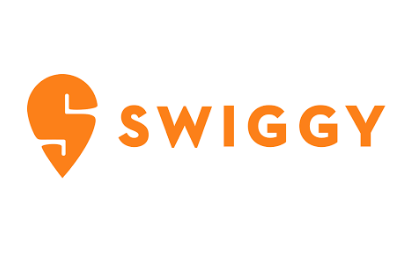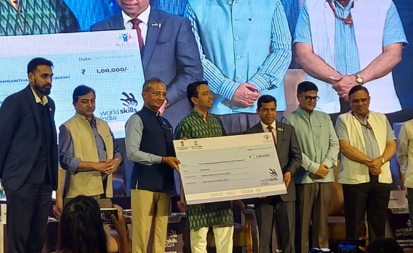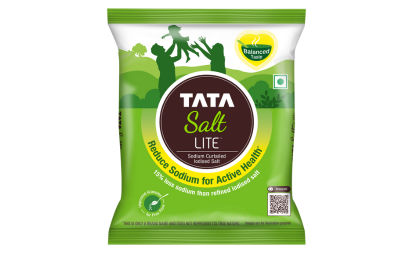NITI Aayog and World Food Program Releases Report – Take Home Ration: Good Practices across the State/Union Territories
NITI Aayog and World Food Program today launched a report titled ‘Take Home Ration-Good Practices across the State/Union Territories’. The report was released by NITI Aayog Vice Chairman Suman K. Bery in the presence of

NITI Aayog and World Food Program today launched a report titled ‘Take Home Ration-Good Practices across the State/Union Territories’. The report was released by NITI Aayog Vice Chairman Suman K. Bery in the presence of Member (Health) Dr. V.K. Paul and CEO Amitabh Kant.
Ministry of Women and Child Development Secretary Indevar Pandey, Senior Advisor Rajib Sen and United Nations World Food Programme Deputy Country Director Eric Kenefick were also present at the launch.
The report presents a set of good and innovative practices adopted in the implementation of the Take Home Ration value chain by the States and UTs. Government of India provides Take Home Ration under the Supplementary Nutrition component of the Integrated Child Development Services (ICDS) to fill the gap in nutrition among children as well as pregnant and lactating women (PLW).
“There is a need to further strengthen THR program to achieve the nutritional targets in a time-bound manner. This document on good practices compiles and collates innovations in THR programmes in various States and Union Territories. Aspects related to production, formulation, distribution, labelling, packaging, monitoring, quality assurance, social and behavioural change have been reviewed to generate a catalogue of good practices. This document will help State Governments/Union Territories to adopt good practices in their THR programmes.”
NITI Aayog Vice Chairman Sh. Suman K. Bery
Member NITI Aayog Dr. V.K. Paul said, “There is a need to develop and maintain highest standards for ensuring quality in THR, where the entire THR value chain must ensure quality, transparency, and efficiency. In this report, various good practices at the State/UTs level have been identified and are documented which would serve as a guidebook to policymakers and administrators in strengthening their Take-Home Ration system.”
“Adequate nutrition during infancy and early childhood is essential to ensure that children are healthy and reach their full growth and development potential. After six months of age, complementary feeding is required to meet the infant’s nutritional needs. There has been a lot of innovation in the field of THR in terms of production, distribution, quality control, monitoring, and use of technology. This report will create opportunities for cross-learning between States/UTs.”
CEO Sh. Amitabh Kant
As a way forward the report suggests that in order to realize the full potential of the THR, all components of this value chain need to function at optimum. This requires building a robust system for procurement, supply chain management and monitoring that ensures complete transparency, standardized process, sustainability, full coverage, leverages local ties, foster a culture of collaboration and builds trust within a community. These measures improve THR access in rural areas, produce THR with high nutrient value, enhance community ownership involving SHGs and promote income generating activities and female empowerment.
—–
 English
English French
French German
German Italian
Italian




